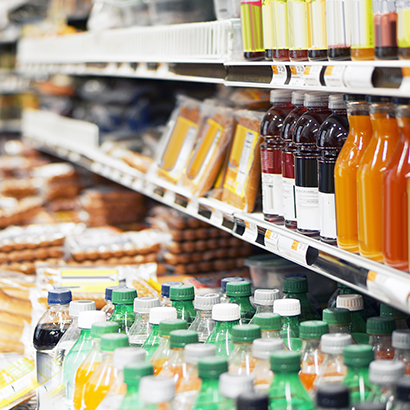
Food and Beverage
Food and beverage companies are continually in need of developing their intellectual property strategies and defending their intellectual property rights.
We work closely with our clients to identify and protect the integrity of their brands to ensure that they distinguish themselves from their competitors. Our Food and Beverage lawyers also help clients with regulatory matters.
We have handled an array of matters ranging from due diligence to business transactions. Our lawyers also offer a full-range of patent services and obtain patent protection for and manage an establishment of food and beverage patent portfolios in the United States, Europe, Asia, and Australia to achieve clients’ business objectives.
We are skilled in every aspect of advertising and intellectual property within the food industry, including:
- Branding, advertising review, and compliance
- False advertising and labeling litigation
- Procurement and management
- Litigation regarding patents, trademarks, trade secrets, and copyrights
- Food, Drugs, Medical Devices and Cosmetics (FDA)
- Due diligence, acquisition, and licensing
Our lawyers have decades of FDA experience. We effectively address the issues and problems that arise for growers, manufacturers, associations, cooperatives and technology providers. Our lawyers also provide crisis management in recall situations, as well as counsel on ingredient, labeling, and advertising matters. Additionally, we provide regulatory strategies for conventional food, functional food, dietary supplements, and medical food. Further, our lawyers help clients comply with dietary supplement GMPs, provide representation in enforcement proceedings, and provide a comprehensive range of other services for the food sector.
Thought Leadership
On 2 April 2025, President Trump announced a series of “reciprocal” tariffs on US imports from all countries. The tariffs apply at different rates by country, starting at a baseline of 10% and reaching as high as 50%.
The Hon. Jim Chalmers MP, Federal Treasurer and the Hon. Clare O'Neil MP, Minister for Housing, Minister for Homelessness issued a joint media release on 16 February 2025 titled "Albanese Government clamping down on foreign purchase of established homes and land banking".
The nuclear energy industry continues to gain momentum and has a strong outlook for 2025 and beyond.
Starting on 30 June 2024, with the application of the first of two introduction phases of the Regulation on Markets in Crypto-assets across all member states of the European Union, the EU has introduced for the first time a harmonized regulatory framework as well as accompanying passporting rights for service providers of the crypto-asset market, affecting both traditional institutions of the financial sector and new players emerging in the crypto-ecosystem.

